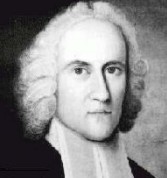How The Doctrine of "Once Saved, Always Saved"
Relates to
the
Heresy of
Decisional Regeneration
The doctrine commonly known as "once saved, always saved" was originally a pejorative phrase coined by Arminians to make fun of three or four point Calvinists who claimed wholehearted assurance of salvation from the Biblical "perseverance of the saints" without acknowledging the essential caveat of "In this the children of God are manifest, and the children of the devil: whosoever doeth not righteousness is not of God". The fact that Christians today proudly claim the "once saved, always saved" label shows how far they have moved away from a biblical understanding of "perseverance of the saints".
Oswald Chambers (1874-1917) was a 20th century Arminian who said of 2 Corinthians 5:17: " If anyone is in Christ, he is a new creation; old things have passed away; behold, all things have become new "
What understanding do you have of the salvation of your soul? The work of salvation means that in your real life things are dramatically changed. You no longer look at things in the same way. Your desires are new and the old things have lost their power to attract you. One of the tests for determining if the work of salvation in your life is genuine is— has God changed the things that really matter to you? If you still yearn for the old things, it is absurd to talk about being born from above— you are deceiving yourself. If you are born again, the Spirit of God makes the change very evident in your real life and thought. And when a crisis comes, you are the most amazed person on earth at the wonderful difference there is in you. There is no possibility of imagining that you did it. It is this complete and amazing change that is the very evidence that you are saved."
After the Civil War, evangelism in the Inquiry Room gradually shifted from the BEST system to the BIST system. This reduced regeneration to a de facto result of "saving faith" with no immediate evidence of regeneration and the indwelling of the Holy Spirit required. It was up to local ministers participating in union meetings like those of D. L. Moody to sort out the sinners from the saints of the few (percentage wise) who came to one of the participating churches.
After 100 years of decisional regeneration, many modern ministers do not know that the Reformation refuted implicit faith. They think implicit faith in salvation scriptures implies regeneration and the indwelling of the Holy Spirit. They think saving faith is entirely psychological, so using the Biblical Evidence of Salvation Test would be heresy. they think scripture says "by faith you are saved through grace" and not "by grace you are saved through faith". They have made faith the agent that saves by grace. They think if you have faith is salvation scriptures, you have grace and are saved.
When implicit faith in salvation scriptures is seen as saving faith in Christ, evidence of regeneration and the indwelling of the Holy Spirit are no longer considered necessary for assurance of salvation. Here is how one misguided minister put it on the internet:
"
Lordship “salvation” (LS) is the unsupportable belief that the PERFORMANCE of good works, the PROMISE of good works, or the EVIDENCE of good works MUST accompany faith in Christ in order to make that faith result in eternal life".
This well-meaning minister confuses the evidence of good works that naturally come from a regenerate heart with good works done in order to be saved or stay saved. The former is Biblical evidence of salvation, the later is a futile attempt to be saved or stay saved apart from regeneration and the indwelling of the Holy Spirit. This is a very common confusion that started when New Light Calvinists after the Civil War gradually shifted from the BEST system to the BIST system in the Inquiry Room.

Jonathan Edwards (1703-1758)
Jonathan Edwards wrote on the subject of false confidence in relation to belief of scripture in his Treatise On ReligiousAffections.
PERSONS THAT THINK THEY HAVE HAD A PERSONAL REVELATION OF SCRIPTURE (EDWARDS CALLS IT “IMMEDIATE DECLARING”) TO THEM THAT THEY ARE SAVED WITHOUT ANY OTHER EVIDENCE ARE DELUDED BY “FAITH IN THEIR FAITH”
"Some persons, under high affections, and a confident persuasion of their good estate, have that, which they very ignorantly call a seeing the truth of the word of God, and which is very far from it, after this manner; they have some text of scripture coming to their minds, in a sudden and extraordinary manner, immediately declaring to them (as they suppose) that their sins are forgiven or that God loves them, and will save them; and it may be have a chain of scriptures coming one after another, to the same purpose and they are convinced that it is truth, that is, they are confident that it is certainly so, that their sins are forgiven, and God does love them, etc.; they say they know it is so; and when the words of scripture are suggested to them, and as they suppose immediately spoken to them by God, in this meaning, they are ready to cry out, truth, truth! It is certainly so! The word of God is true! And this they call a seeing the truth of the word of God.
Whereas the Whole of their faith amounts to no more, than only a strong confidence of their own good estate, and so a confidence that those words are true, which they suppose tell them they are in a good estate: When indeed (as was shown before) there is no scripture which declares that any person is in a good estate directly, or any other way than by consequence. So that this, instead of being a real sight of the word of God, is a sight of nothing but a phantom, and is all over a delusion. Truly to see the truth of the word of God, is to see the truth of the gospel; which is the glorious doctrine the word of God contains, concerning God, and Jesus Christ, and the way of salvation by Him, and the world of glory that He is entered into, and purchased for all them who believe; and not a revelation that such and such particular persons are true Christians, and shall go to heaven. Therefore those affections which arise from no other persuasion of the truth of the word of God than this, arise from delusion, and not true conviction; and consequently are themselves delusive and vain.
But if the religious affections that persons have, do indeed arise from a strong persuasion of the truth of the Christian religion; their affections are not the better, unless their persuasion be a reasonable persuasion or conviction. By a reasonable conviction, I mean a conviction founded on real evidence, or upon that which is a good reason, or just ground of conviction".

Joseph Bellamy (1719-1790)
Joseh bellamy wrote on the subject of false confidence in relation to belief of scripture in his True religion Delineated.
The subtitle of True Religion Delineated, was “experimental religion, as distinguished from formality on the one hand, and enthusiasm in the other”. As the title implies, Bellamy was correcting two types of false convert at the time of the First Great Awakening. He did not deal with the most common type of gospel hypocrite of today - the “bare faith” evangelical hypocrite. This was written in 1750, 15 years before Robert Sandeman introduced the “bare faith” heresy to the American colonies. The Campbellites were decades in the future. It would be 75 years before the bare faith hypocrites became common – when many Baptist churches and some Sandeman churches converted to Campbellism. Then, after the Civil War, some fourth generation New Light Calvinists and most fifth generation New Light Calvinists started to promote the bare faith approach inherent in the Belief In Scripture Test (BIST) in the Inquiry Room as evidence of saving faith with de facto regeneration.
EVANGELICAL HYPOCRITES
"All their faith consists in believing that their sins are forgiven. And all the foundation which their faith is originally built upon, is an immediate revelation; the truth of which they dare not call in question, for fear of giving the lie to the Holy Spirit, from whom, they say, they know it came. But how could the Spirit of God reveal it to them, that Christ loved them, and that their sins were forgiven, and hereby lay the foundation for their first act of faith, when, before the first act of faith, they were actually under " condemnation, the wrath of God, and the curse of the law"? (John iii. 18, 36. Gal. iii. 10.) The thing revealed to them was not true; and therefore was not from God, but from the devil. Now, this false revelation laid the foundation for their faith, and their faith laid the foundation for their joy, and for all their religion. A spiritual sight and divine sense of the great truths presupposed and revealed in the gospel, is the foundation of the godly man's faith and holiness; but a particular thing, nowhere revealed in the Bible, is their foundation (THE REVELATION THAT THEIR SINS ARE FORGIVEN) yea, a falsehood that is directly contrary to what the Scriptures plainly teach".